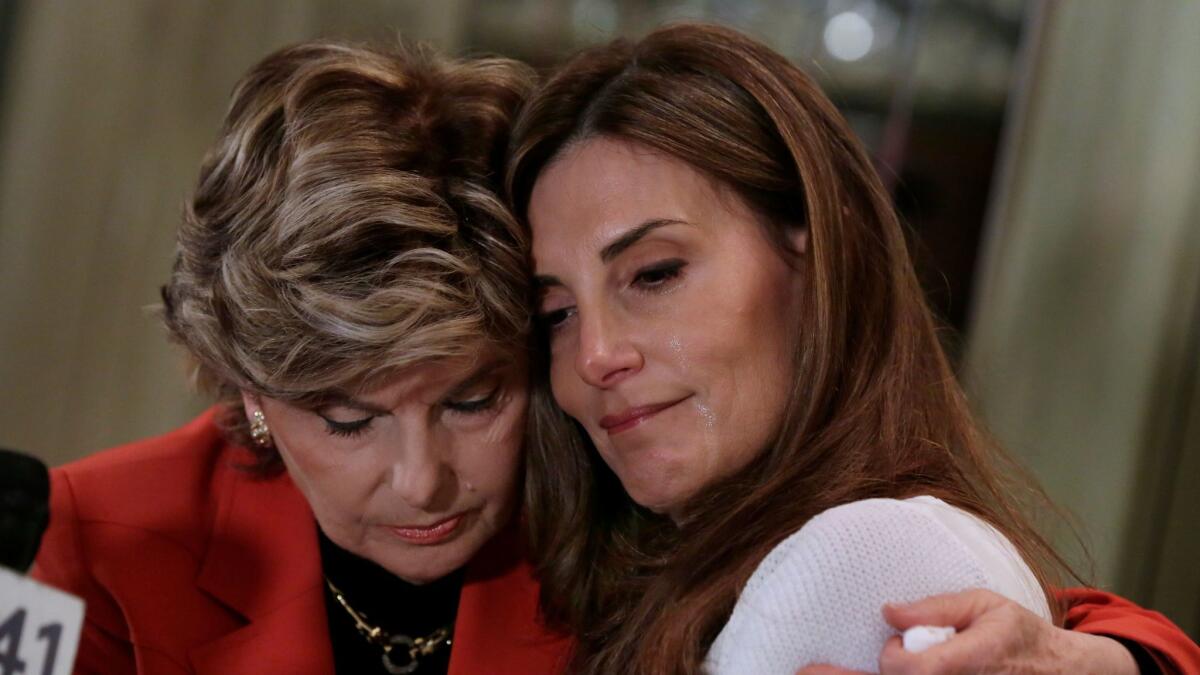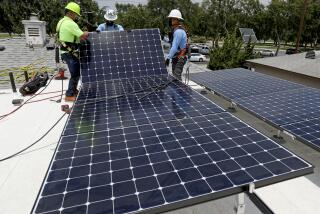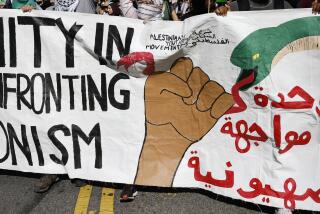Op-Ed: All Trump gropes are bad, but they aren’t all equal or equally horrible

The Trump-inspired national seminar on sexual harassment and assault has given me, like a lot of women, occasion to think about my own experiences in this arena. I’ve mostly been mercifully untouched, so to speak.
Sure, I’ve endured various permutations of sad, desperate men overstepping boundaries: drunk ones who got “handsy” at weddings, insecure ones trying to prove their manhood by catcalling on the street, mentally disturbed ones whispering dirty things in my ear on the subway. Once I was followed on a dark Hollywood street by a man I’m convinced would have grabbed me had I not lucked onto a lighted parking lot staffed by an attendant. But all in all, I consider myself exceedingly lucky — no serious threats, no real violence. I also count myself lucky that I have a naturally thick skin. It’s pretty hard to insult me on the street or elsewhere.
There are those who would argue that I’m blind. One of the themes of the moment is that some women have so thoroughly internalized misogyny that they don’t recognize their own oppression. Unwanted male sexual aggression is endemic in this view, and every woman is its victim, no matter how lucky she feels.
Do middle-class white women really have to make more calculations about how, when and where they walk the streets than, say, young men of color?
On social media and elsewhere, sentiments such as “to be a woman is to live in fear” are cropping up with troubling regularity, often from women who, like me, enjoy notably privileged and protected lives. A 2015 graph showing steps women take to avoid street harassment (such as taking a different route home or feeling “pressured to change how they dress”) is making the Facebook rounds. Without fail, the “me, too!” responses pile up beneath it like snowdrifts.
Look, I recognize that what counts as a life-changing negative experience is different for everyone. But is choosing a well-lighted way home and thinking about how you present yourself in public really indicative of outrageous patriarchal oppression? And while we’re at it, do middle-class white women really have to make more calculations about how, when and where they walk the streets than, say, young men of color?
I’m not unsympathetic to any story of street harassment, but I also can’t pretend they are all equal or equally horrible. In fact, I worry that by fostering the notion that it’s wrong to “privilege” one kind of bad experience as worse than another, we’ve established what can only be called a false democracy of trauma.
That democracy is what engenders news conferences such as the one last week in which yoga instructor and life coach Karena Virginia stood beside celebrity attorney Gloria Allred and described a 1998 encounter with Donald Trump that essentially amounted to his grabbing her arm and touching part of her breast while she waited for car service. Virginia tearfully relayed the decades-long aftereffects: She couldn’t enjoy dress shopping and she felt forced to cover up with shawls at dinner parties
Unlike many of the other women who have accused Trump of sexual misconduct, Virginia’s experience was … minimal. Her livelihood didn’t depend on Trump, and she was in so public a situation it seems unlikely the encounter would have escalated. That doesn’t make it right or pleasant but, as Judith Newman wrote in a provocative post on the website Refinery29, the media circus stirred up by Allred (who specializes in such things) set up a false equivalency between Virginia’s story and that of the other accusers. It worked to undermine them all, playing into the hands of the Trump camp, which claims that the accusations are a farce.
“In order for women to be taken seriously when they are abused,” Newman wrote, “we can’t constantly redefine victimhood to meaninglessness.”
The backlash was swift and convulsive (full disclosure, Newman is a friend, though I’d defend her post even if she weren’t). Commenters uniformly proved themselves incapable of understanding that it’s possible to support victims while also acknowledging that some forms of victimization are worse than others. Making distinctions, they thought, gave a free pass to the sexually abusive.
I see the point. But it misses a bigger point: Though we’re obliged to give equal respect to people’s reactions to suffering, trauma in reality exists on a spectrum. The attempt to democratize it may seem like compassion, but in the case of women such as Virginia, it can end up being more like infantilization. And that can be its own kind of trauma.
Follow the Opinion section on Twitter @latimesopinionand Facebook
More to Read
A cure for the common opinion
Get thought-provoking perspectives with our weekly newsletter.
You may occasionally receive promotional content from the Los Angeles Times.







